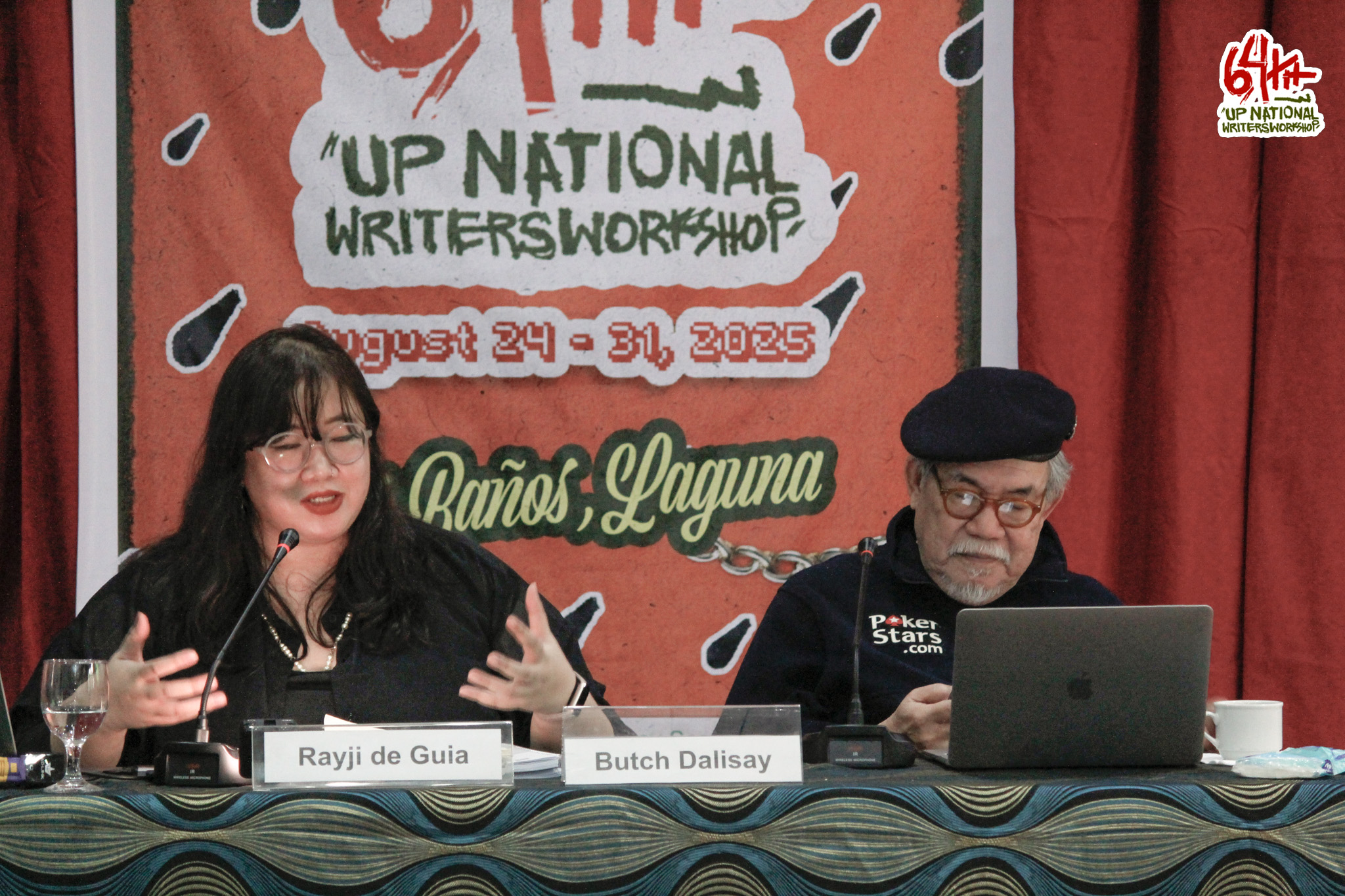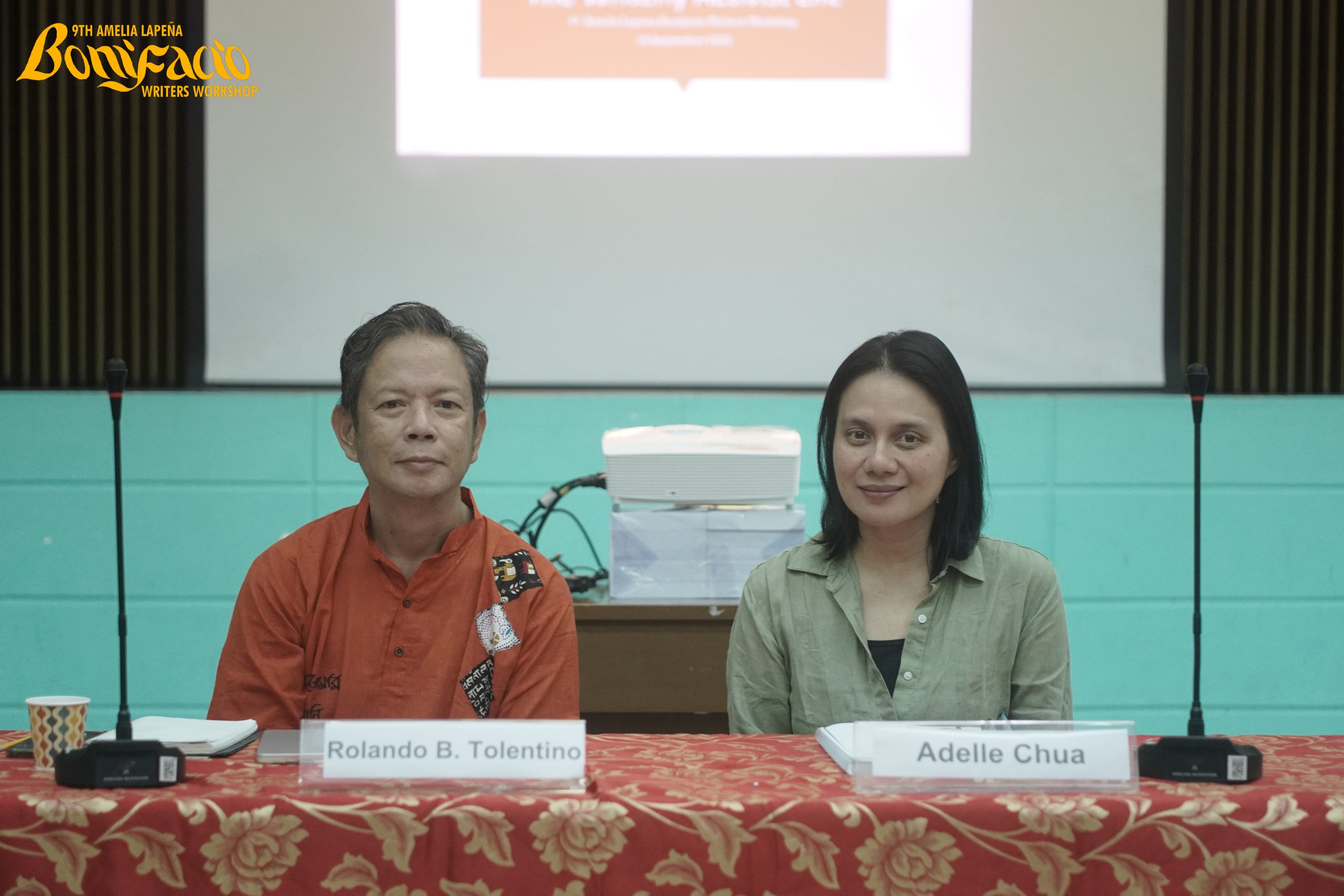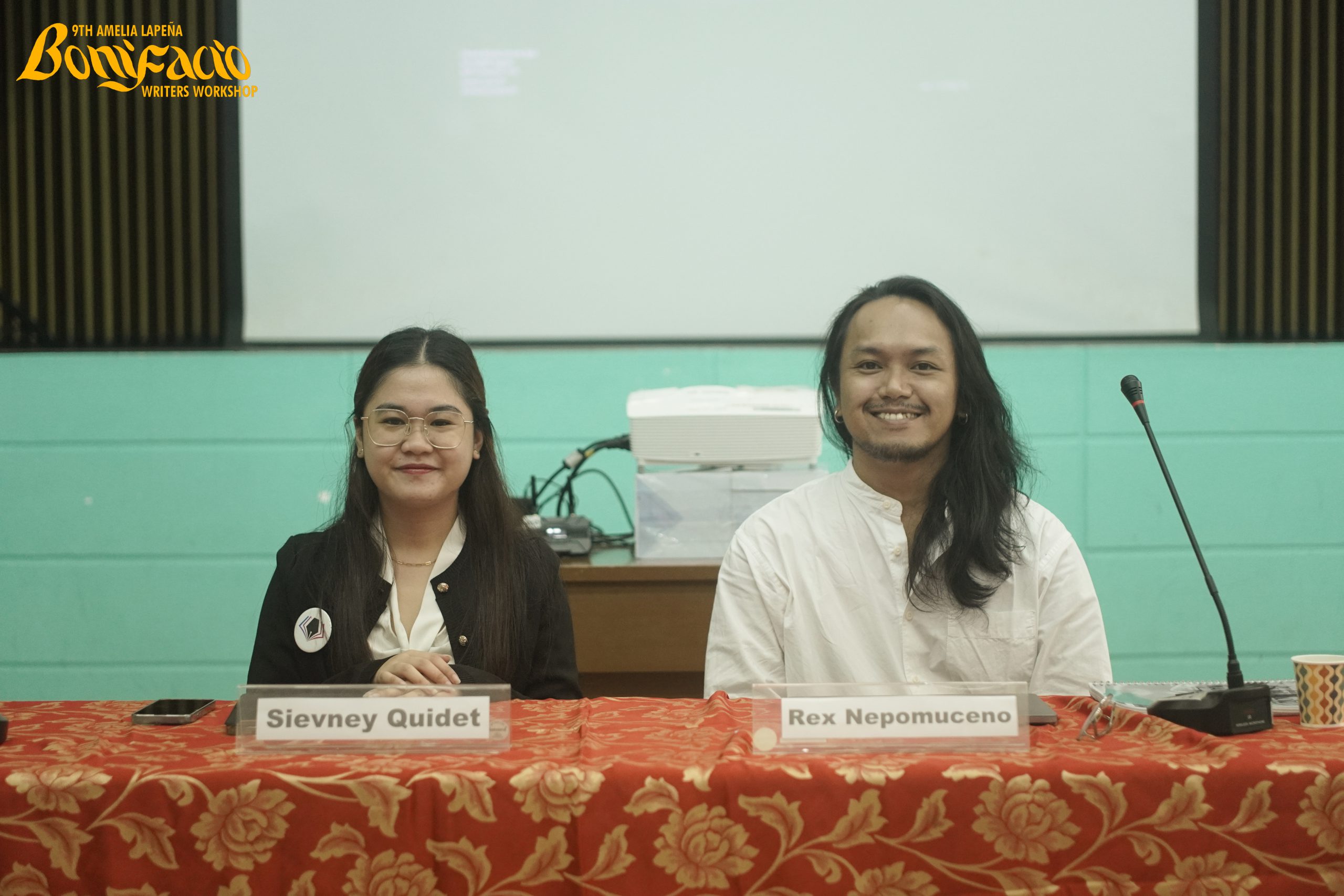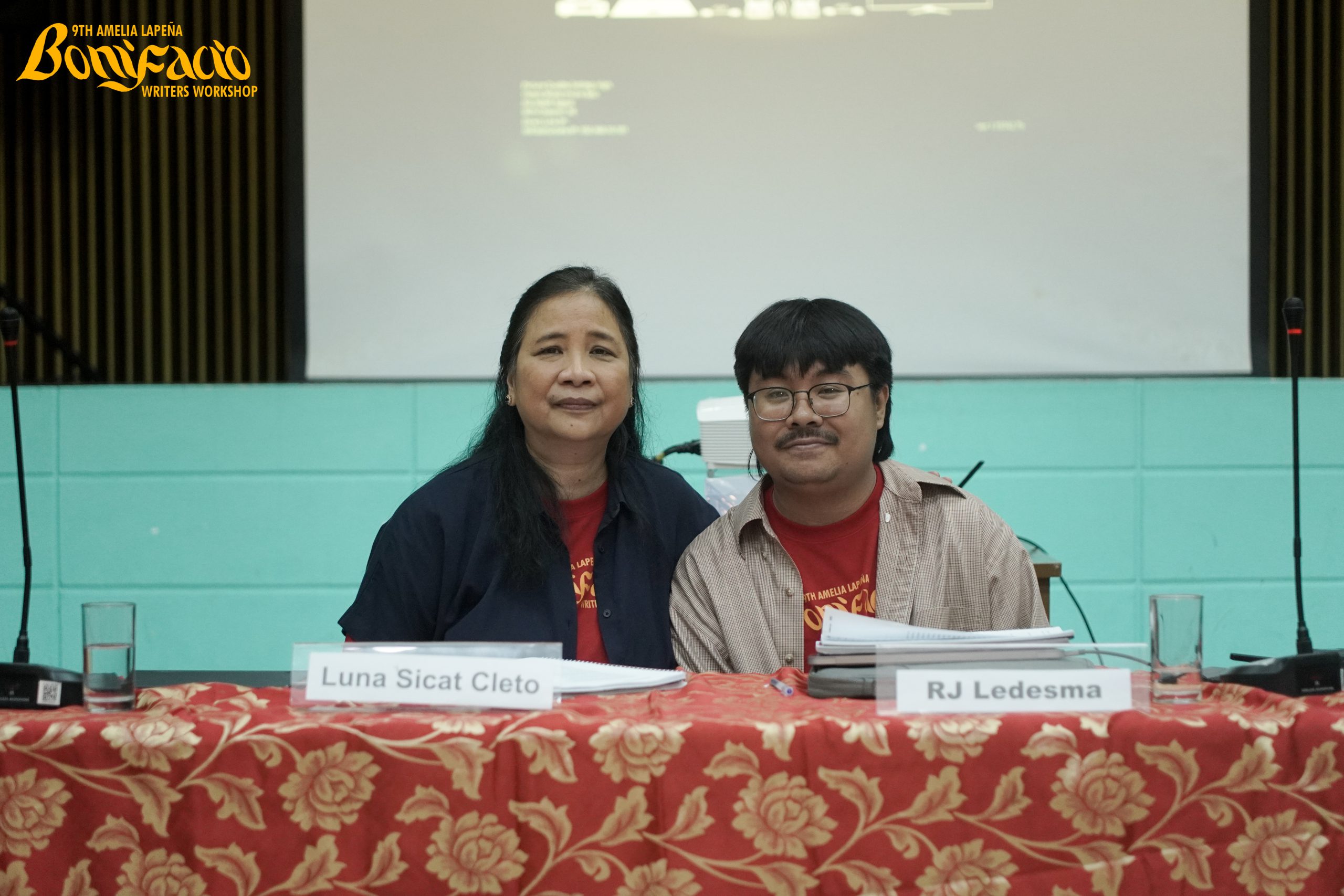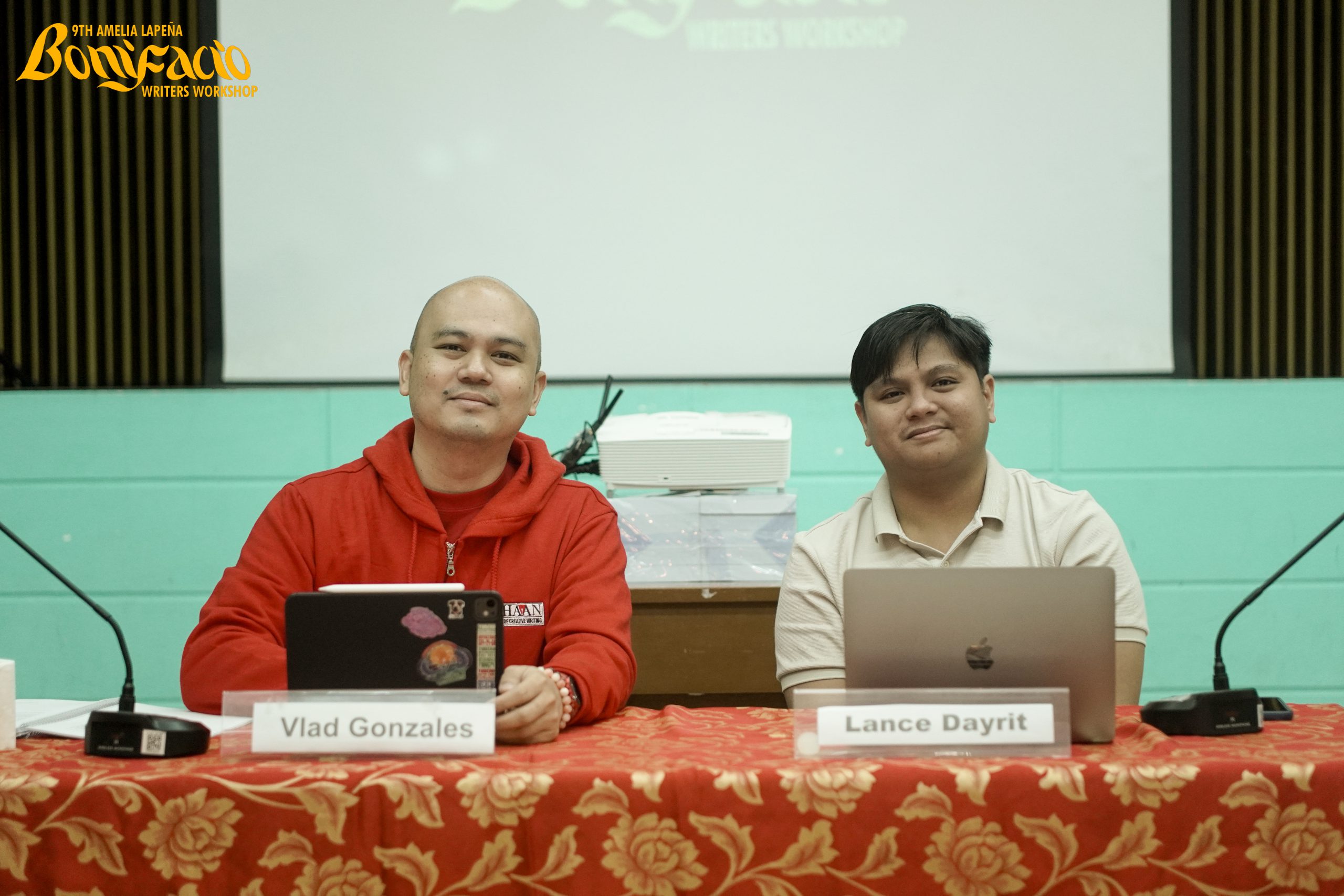Fellow: Rayji de Guia
Moderator: Jose Y. Dalisay Jr.
On his first reading of “Vestments,” Dr. Butch Dalisay noted, “Not my thing, but good.” During the workshop session, he echoed the same sentiment in pointing out the remarkable contrast between him—an old, self-admittedly grumpy, and straight man—and de Guia, who is young and queer. However, he praised de Guia’s piece as possessing a “transcendent quality” that appeals even to people totally unlike her.
In explaining her poetics, de Guia cited Nick Joaquin (most notably, The Woman Who Had Two Navels) as one of her greatest influences—in fact, she professed to having fallen in love with the notion and possibilities of a tropical gothic way before having encountered Joaquin. She also described her poetics as one of “mustiness,” a self-conscious, multilingual approach to writing in English that is “not too translated.” The particular themes and concerns she wishes to explore in “Vestments” include the intersections between fatness, disability, and body horror, as well as Catholicism and queer identities.
Dr. Luna Sicat Cleto praised de Guia’s piece as possessing “kilig at kilabot,” unique in Philippine literature with its particular portrayal of lesbian desire and erotic conveyance. Another one of the piece’s positive qualities, as pointed out by Dr. Vladimier Gonzales, is the localization of its prose—its “Filipino-ness” within English. Meanwhile, Dr. Jun Cruz Reyes and Dr. Joey Baquiran suggested that the writer expand on certain narrative threads to deepen the themes of faith, trauma, and eroticism.
Regarding the trimming or cutting down of the character “Mamita,” as suggested by fellow Jade Capiñanes, Dr. Vladimier Gonzales answered that he appreciates the complexity of Mamita’s SOGIE (Sexual Orientation, Gender Identity and Expression), as it is an “alternative” kind of queerness that is anchored in reality but otherwise exists only in our peripheries. To end the session, de Guia expressed gratitude for the mostly positive reception of such a personal work.

